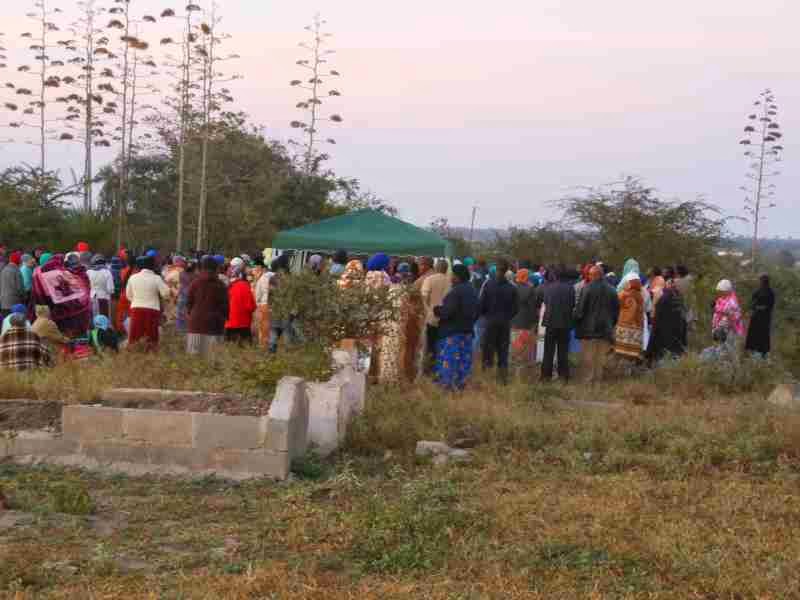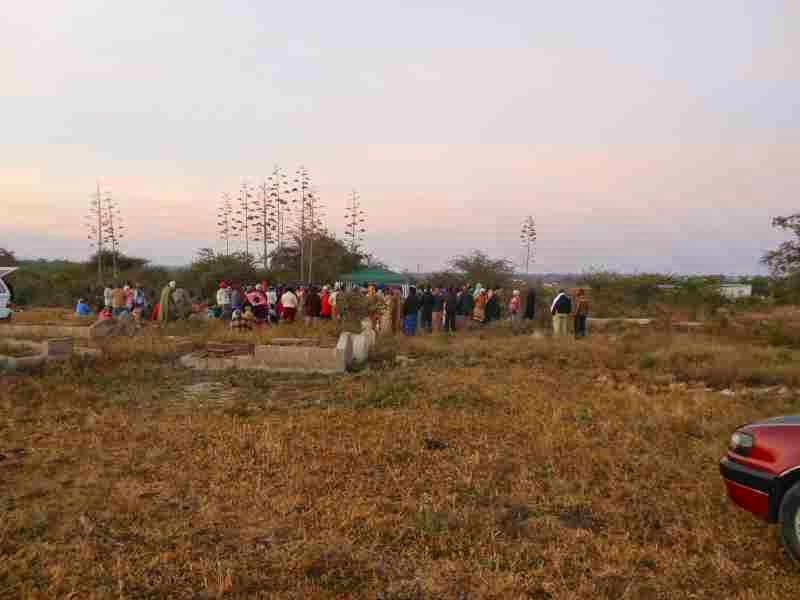We went to our first funeral in
Swaziland on Sunday, May 25. We've heard many of the funeral vigils
through the night, but we'd not had occasion to be at one. This
time, however, we attended the end of the overnight vigil and the
burial of the brother of the mother (the siSwati name for mother is
“make,” pronounced with a hard g sound for the “k” and a long a at
the end; its a term of respect – you've born a child.) in our
homestead. He'd suffered a stroke before we arrived at site in
September and could not speak. He'd sit with the 2 older women (Make
and Gogo - “grandmother” - even more respectful; widow of the
older brother of the father ("Babe" soft "a", the final "e" is a long "a") in our homestead) on their porch on hot
summer afternoons. We could not communicate much with him, but he
seemed very gentle and kind, and we sensed he understood us pretty
well; not everyone does.
Swazis hold an all-night vigil
the night before a funeral, with much singing and preaching. We
touched base with family members who could communicate with us in
English and determined it was OK to skip that and go over around 5
a.m. for the burial. The women knocked on our door at 4:30, ready to
go! Swazi time in reverse. We walked in the dark to the adjacent
homestead, where around 150 people were gathered. Katherine
recognized many, I a few. The waning sliver moon and Venus shown
bright in the East, the milky way a glowing swath above – the stars
in the milky way seen from the southern hemisphere are
actually brighter than in the northern hemisphere.
An enclosure had been erected from
poles and tarps at the deceased's homestead, and about 80 people,
mostly men but some women, were gathered inside around the casket, on
a table, covered with a blanket and plastic flowers. The singing had
become fainter and more disjointed in the course of the night.
Our Babe, who is a preacher and played
a lead role, and other men kept peering out of the tent, and when
they saw the East just starting to brighten with the precursor of
dawn an obituary was read, final prayers said, and some hymns sung.
There was some laughter, probably at some anecdote, and some tears.
Kind of like what happens in the U.S.
The body was then carried to the
back of a pickup and driven slowly to the nearby family grave-site,
and the body was lowered into a grave, carefully lined with grass
mats, as the sun peaked over the horizon. Prayers, hymns.
I had to leave to get up to Mbabane to
try to get on one of the 3 computers at PC headquarters available to
PC volunteers to put out the monthly PC newsletter; I took these
picture as I left.
It was chilly – low 50s (F).
Walking in the early dawn the 1 1/4 miles to the bus rank, I was moved and thoughtful at the beautiful
burial at dawn. I am put off by many religious practices in this
country: the length and, with electronic magnification, the volume of
religious services in a language I barely understand even when the
acoustics are ideal; the preaching has an angry tone, although the
few times I've been able to understand the words the actual meaning
is more determined than wrathful. But this service was beautiful and
moving, and just right for me. When my time comes, were my services
timed the same, I'm sure attendance would be significantly reduced,
but those who came, if the dawn were as perfect as this one, might be
gratified.


I continue to be fascinated by all your adventures!
ReplyDeleteBest regards,
Monika McDonald